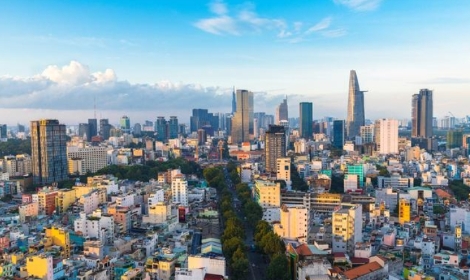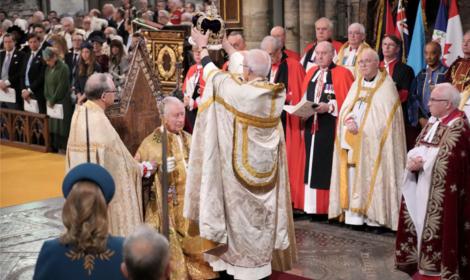如果东罗马帝国存活到现代会怎样?这可能会怎么实现?
正文翻译
Torrey Stephen Whitman
With apologies for an anecdote, I remember a grad student who asserted that the Roman Empire only ended c. 1922, with the abolition of the Ottoman Sultanate. Ottoman Turkey as a successor state to the Eastern Roman Empire. Plenty of room for assertions and challenges to the idea.
抱歉插入一个轶事,我记得有一位研究生曾断言,罗马帝国直到大约1922年才终结,即奥斯曼苏丹制被废除。奥斯曼土耳其作为东罗马帝国的继承国。这个观点有很多空间可以提出主张和挑战。
The Ottomans did rule over most of the provinces of the post-476 Roman Empire for several hundred years: Anatolia, Syria, Egypt, most of the Balkans, and much of North Africa, from the 15th to late 19th centuries.
奥斯曼帝国确实在15世纪到19世纪末的几百年间统治了大部分476年后罗马帝国的省份:安纳托利亚、叙利亚、埃及、大部分巴尔干半岛和北非的大部分地区。
At times, the Ottomans, like their Byzantine predecessors, sought to regain control in older Roman areas, like Hungary, Austria, and Italy. Interesting to think abut them asvwould be heirs of the Roman Empire.
有时,奥斯曼帝国像他们的拜占庭前身一样,试图重新控制一些古罗马的地区,如匈牙利、奥地利和意大利。有趣的是,他们将成为罗马帝国的继承人。
Stephen Cunningham
What if Eastern Rome survived to the modern day? How would it be possible? What if Rome survived to the modern day? How would it be possible? Eastern Rome could have survived to the modern day if the Roman Emperor Thodocious did not split te Roman Empire in half in 395 AD and made both of his sons Hnorious and Arcadius Roman Emperors. This is how it would it be possible.
如果东罗马帝国存续到现代会怎样?这怎么可能?如果罗马帝国存续到现代会怎样?东罗马帝国可以存续到现代,如果罗马皇帝狄奥多西在公元395年没有将罗马帝国分裂为两半,并且没有让他的两个儿子霍诺里乌斯和阿卡迪乌斯分别成为罗马皇帝的话。这就是为什么它是可能的。
With apologies for an anecdote, I remember a grad student who asserted that the Roman Empire only ended c. 1922, with the abolition of the Ottoman Sultanate. Ottoman Turkey as a successor state to the Eastern Roman Empire. Plenty of room for assertions and challenges to the idea.
抱歉插入一个轶事,我记得有一位研究生曾断言,罗马帝国直到大约1922年才终结,即奥斯曼苏丹制被废除。奥斯曼土耳其作为东罗马帝国的继承国。这个观点有很多空间可以提出主张和挑战。
The Ottomans did rule over most of the provinces of the post-476 Roman Empire for several hundred years: Anatolia, Syria, Egypt, most of the Balkans, and much of North Africa, from the 15th to late 19th centuries.
奥斯曼帝国确实在15世纪到19世纪末的几百年间统治了大部分476年后罗马帝国的省份:安纳托利亚、叙利亚、埃及、大部分巴尔干半岛和北非的大部分地区。
At times, the Ottomans, like their Byzantine predecessors, sought to regain control in older Roman areas, like Hungary, Austria, and Italy. Interesting to think abut them asvwould be heirs of the Roman Empire.
有时,奥斯曼帝国像他们的拜占庭前身一样,试图重新控制一些古罗马的地区,如匈牙利、奥地利和意大利。有趣的是,他们将成为罗马帝国的继承人。
Stephen Cunningham
What if Eastern Rome survived to the modern day? How would it be possible? What if Rome survived to the modern day? How would it be possible? Eastern Rome could have survived to the modern day if the Roman Emperor Thodocious did not split te Roman Empire in half in 395 AD and made both of his sons Hnorious and Arcadius Roman Emperors. This is how it would it be possible.
如果东罗马帝国存续到现代会怎样?这怎么可能?如果罗马帝国存续到现代会怎样?东罗马帝国可以存续到现代,如果罗马皇帝狄奥多西在公元395年没有将罗马帝国分裂为两半,并且没有让他的两个儿子霍诺里乌斯和阿卡迪乌斯分别成为罗马皇帝的话。这就是为什么它是可能的。
评论翻译
Stephen Cunningham
In the late 330-s Constantine expanded Constantinople in to a major city with the help of the Goths and Alamani and the Franks from the Balkans.He built fortifications all over Byzantium and planed to invade Armenia but decide against it i 325-AD Constantine called for the council of Nicea but thee Eastern Bishops were against this idea they claimed jurisdiction over the Christian church all of the Bishops of Rome finally agreed on Birth of Christ
在公元330年代末,君士坦丁扩展了君士坦丁堡,使其成为一座重要城市,并在哥特人、阿拉曼人和来自巴尔干半岛的法兰克人的帮助下完成了这项工作。他在整个拜占庭修建了防御工事,并计划入侵亚美尼亚,但最终决定放弃。在公元325年,君士坦丁召集了尼西亚公会议,但东部主教们反对这一提议,他们声称对基督教教会拥有管辖权。最终,罗马的所有主教都同意了耶稣基督的诞生。
David Hamm
Forget it —it WOULDN’T have happened because it WOULDN’T have been possible.
忘了吧——这根本不会发生,因为这根本不可能。
During the ‘Middle Ages’ Constantinople, the former Emperor Constantine’s NEW capital at the point of the water passage from the Aegean Sea through the channel of the Bosphorus and into the Black Sea, was TOO CLOSE to the Middle East, then dominated by Muslims in the Ottoman Empire. It took them several tries, but by 1453, the Ottomans captured the city after a 53 day siege, following which Sultan Mehemet II made the city, renamed Istanbul, his new capital, marking the end of the thousand-year solo reign of the Byzantine empire (the former Eastern Roman Empire) following the 476 AD sacking of the ‘Western Empire’ at Rome.
在中世纪时期,君士坦丁堡——即皇帝君士坦丁建立的新都城,位于爱琴海通过博斯普鲁斯海峡通往黑海的水道上——距离中东地区过于接近,当时中东由奥斯曼帝国的穆斯林统治。经过几次尝试后,奥斯曼帝国于1453年攻陷了这座城市,经过53天的围攻,苏丹穆罕默德二世将这座城市更名为伊斯坦布尔,作为他的新的都城,这标志着拜占庭帝国(即以前的东罗马帝国)在公元476年西罗马帝国在罗马被洗劫后的千年统治的终结。
From Istanbul, the Muslim Ottomans poured into Eastern Europe, conquering multiple territories and re-settling them with people of Islamic ancestry, eventually getting all the way to the gates of Vienna, then capital of the Holy Roman Empire. Over the coming decades, Vienna would be assaulted multiple times—in 1485, in 1529, and finally in 1683 the Ottomans, then under Grand Vizier Kara Mustafa Pasha , with as many as 150,000 followers, laid siege to the walls of Vienna for nearly two months until other Christian forces, mostly cavalry, under the overall leadership of Polish (Christian) King Jan Sobieski arrived in the ‘nick of time’ to break the siege as the walls themselves were about to be breached. The Grand Vizier was compelled to fall back as the forces of the ‘Christian Coalition’ pursued him and ‘liberated’ many formerly Christian areas in Hungary and the Balkans, although some would be ‘reconquered’ by Muslims in later centuries.
从伊斯坦布尔开始,穆斯林奥斯曼帝国向东欧扩张,征服了多个领土,并将其重新安置了伊斯兰血统的人民,最终一直抵达了维也纳的城门,当时维也纳是神圣罗马帝国的首都。在接下来的几十年里,维也纳多次遭到攻击——分别在1485年、1529年和1683年,奥斯曼帝国在大维齐尔卡拉穆斯塔法帕夏的指挥下,集结了多达150,000人的军队,对维也纳城墙进行了近两个月的围攻,直到其他基督教力量,主要是骑兵,在波兰(基督教)国王扬·索别斯基的总体指挥下及时赶到,并打破了围攻。当城墙即将被攻破时,大维齐尔被迫撤退,基督教联军追击他并“解放”了许多曾经的基督教地区,包括匈牙利和巴尔干地区,尽管其中一些地区在后来的世纪里被穆斯林重新征服。
Although the Ottoman Empire would keep its capital at Istanbul (formerly Constantinople) at the lix between Asia Minor and Eastern Europe, the Empire would —and did — conquer the Middle East to the shores of the Red Sea and its Muslim holy sites in Medina and Mecca (AND Jerusalem) and then conquered lands in Eastern Europe including Greece and north to the gates of Vienna (Austria) itself, before halted in 1683.
虽然奥斯曼帝国将其首都保持在伊斯坦布尔(前君士坦丁堡),这一地理位置连接了小亚细亚和东欧,但该帝国确实征服了中东地区,一直扩展到红海沿岸,包括穆斯林的圣地麦地那和麦加(以及耶路撒冷),随后又征服了东欧的领土,包括希腊,甚至北至维也纳(奥地利)城门,直到1683年才被阻止。
For the record, Vienna, Austria wasn’t ‘captured’ until Napoleon I briefly entered the city twice, in 1805 when a treaty of friendship was signed at Schonbrunn Palace after Napoleon’s victory at Austerlitz, and again in 1809 for a brief period. Vienna would be conquered ONCE MORE — by the Soviet Russians in 1945, who held the city until agreement at war’s end separated the city into ‘zones’ held by the Soviets, the British, American, French and the largest the Soviet zone, with the ‘city center’ being administered by all four together. This continued until Austria regained political independence in 1955. (Similar zones had been created in Berlin as well, which held ‘officially’ until the Berlin Wall was torn down by students and other participants in 1989. )
需要说明的是,维也纳(奥地利)直到拿破仑一世短暂地进入这座城市两次才“被占领”。第一次是在1805年,当时在奥斯特利茨战役后,拿破仑在谢农布伦宫签署了友好条约;第二次是在1809年,拿破仑再次短暂进入维也纳。维也纳还曾被苏联红军再次占领,时间是1945年,他们控制了这座城市,直到战争结束后,根据协议将城市划分为由苏联、英国、美国、法国四国控制的“区域”,其中苏联区最大,市中心由四国共同管理。这种情况持续到1955年奥地利恢复政治独立。(类似的占领区也在柏林创建,并一直‘正式’存在,直到1989年由学生和其他参与者拆除柏林墙。)
Zak Casey
With the Enlightenment of the 17th century eventually came ideals of liberalism and nationalism, then eventually socialism, Communism and fascism. The old empires of Europe, especially those which incorporated many ethnic and/or religious groups generally succumbed to these new, revolutionary ideas, especially nationalism. I imagine that the non-Greek populations would have fought for independence to a great extent in the 1800s, as the non-Turk populations did in the Ottoman Empire.
随着17世纪启蒙运动的兴起,逐渐出现了自由主义、民族主义,后来又出现了社会主义、共产主义和法西斯主义。特别是那些包含许多民族和/或宗教群体的古老欧洲帝国,普遍屈从于这些新兴的革命性思想,尤其是民族主义。我想,19世纪时,非希腊族群可能会大力争取独立,就像奥斯曼帝国的非土耳其族群一样。
Alternatively the other dominant revolutionary ideology, liberalism, may have shaped the Byzantine Empire. This would have likely resulted in the implementation of democracy and the status of emperor being reduced to a ceremonial role, or abolished altogether. In addition many of the non-Greek areas would likely vote for independence and either be granted it or engage in war to secure it, likely succeeding as independence wars fought with guerrila tactics have historically proved to be highly effective.
另一方面,另一种主导的革命性意识形态——自由主义,可能会对拜占庭帝国产生影响。这可能会导致民主制度的实施,并使皇帝的地位降至仪式性的角色,或者完全废除。此外,许多非希腊地区可能会投票争取独立,要么获得独立,要么通过战争争取独立,历史上,采用游击战术的独立战争通常被证明是非常有效的。
Likely the Byzantine Empire would have experienced a similar fate as the Ottoman Empire did if it survived into the era of nationalism and liberalism. Today, it would probably not exist. I imagine Greece would exist in its place, but more powerful and with a greater population and extent of terrorities (primarily in Anatolia) than it does today. Likely a Byzantine dynasty would still exist too, but having formally relinquished their claim on the empire some decades ago much as the Osman dynasty has abandoned their claim on the Ottoman Empire.
如果拜占庭帝国在民族主义和自由主义时代幸存下来,它可能会经历类似于奥斯曼帝国的命运。今天,它可能不会存在。我想象中,希腊会取而代之,但会更强大,人口和领土(主要是在安纳托利亚地区)也比现在更广阔。可能还有一个拜占庭王朝存在,但像奥斯曼王朝放弃对奥斯曼帝国的主张一样,这个拜占庭王朝也会在几十年前正式放弃对帝国的主张。
Paul Georgian
If Byzantium had survived to modern times it is likely, it is likely that it would be a constitutional monarchy within a democratic frxwork. I believe the Imperial system would survive predicated on two things, one since the monarchy can be traced directly back to Augustus, eliminating it completely might be too much of a shock to the body politic and 2 if the Imperial family was intelligent at the time of the inevitable democratic reforms they would have gone with the flow and been a supporter of reform. Assuming the Bulgars and Serbs maintained their identity they would have eventually formed their own nations. That would leave a Byzantine state with all of Greece, some additional territory in the Balkans south of the Balkan mountains, Thrace and Macedonia and all or most of what is now Turkish Anatolia. In addition fully independent states of Georgia and Armenia would exist supported by Byzantium and fully allied to it. These 3 Christian allied states would be a strong buffer to Muslim domination of the Middle East. Given the entrepernurial nature of the Greek and Armenian people, it is likely our modern Byzantine State would certainly be as advanced as Italy and Spain, and probably the equal of France and Germany. And I, of course, would be living in Constantinople as a happily retired member of the Byzantine Commonwealth.
如果拜占庭帝国幸存至现代,它可能会成为一个在民主框架内的君主立宪制国家。我认为帝制会继续存在,基于两个因素:其一,由于君主制可以直接追溯到奥古斯都,彻底废除可能对政治体制造成太大的冲击;其二,如果在不可避免的民主改革时,皇室家族足够聪明,他们会顺应潮流,支持改革。假设保加利亚人和塞尔维亚人保持了他们的身份,他们最终会形成自己的国家。这将使拜占庭帝国拥有全部希腊、巴尔干山脉以南的一些额外领土、色雷斯和马其顿,以及现在土耳其安纳托利亚的大部分或全部领土。此外,格鲁吉亚和亚美尼亚将作为完全独立的国家存在,得到拜占庭的支持,并与拜占庭结盟。这三个基督教盟国将成为抵御中东穆斯林统治的强大缓冲区。考虑到希腊和亚美尼亚人的创业精神,我们现代的拜占庭国家很可能与意大利和西班牙一样先进,甚至可能与法国和德国齐平。而我,当然,会作为拜占庭联邦的一个幸福退休成员生活在君士坦丁堡。
Leon Brekmon
Yes, at many points during the Eastern Roman Empires existence there were mistakes made. If the Eastern Roman Empire had not rapidly expanded during Justinian's rule and wasted all their treasury on his dreams, the empire may have been able to defend off invaders such as the Muslim Caliphate. Time and time again the Eastern Romans could have focused more upon lasting as an empire, but corruption and internal crises plagued them especially towards the end of their days. But the state which would exist today would not be exactly like the Eastern Roman Empire just like Mr. Coopman mentioned, it may be the size of Greece except with control over Istanbul, or it might have a parliament, or some other government other than a monarchy.
是的,在东罗马帝国的存在过程中,确实犯过许多错误。如果东罗马帝国在贾斯丁尼安统治期间没有急于扩张,并将所有的国库用于他的梦想,帝国可能能够抵御像穆斯林哈里发这样的入侵者。东罗马人一次又一次地有机会专注于帝国的持久存在,但腐败和内部危机特别是在帝国晚期困扰了他们。但今天存在的国家可能不会完全像东罗马帝国,正如库普曼先生提到的那样,它可能只是希腊的规模,却控制了伊斯坦布尔,或者它可能有一个议会,或其他非君主制的政府形式。
In the late 330-s Constantine expanded Constantinople in to a major city with the help of the Goths and Alamani and the Franks from the Balkans.He built fortifications all over Byzantium and planed to invade Armenia but decide against it i 325-AD Constantine called for the council of Nicea but thee Eastern Bishops were against this idea they claimed jurisdiction over the Christian church all of the Bishops of Rome finally agreed on Birth of Christ
在公元330年代末,君士坦丁扩展了君士坦丁堡,使其成为一座重要城市,并在哥特人、阿拉曼人和来自巴尔干半岛的法兰克人的帮助下完成了这项工作。他在整个拜占庭修建了防御工事,并计划入侵亚美尼亚,但最终决定放弃。在公元325年,君士坦丁召集了尼西亚公会议,但东部主教们反对这一提议,他们声称对基督教教会拥有管辖权。最终,罗马的所有主教都同意了耶稣基督的诞生。
David Hamm
Forget it —it WOULDN’T have happened because it WOULDN’T have been possible.
忘了吧——这根本不会发生,因为这根本不可能。
During the ‘Middle Ages’ Constantinople, the former Emperor Constantine’s NEW capital at the point of the water passage from the Aegean Sea through the channel of the Bosphorus and into the Black Sea, was TOO CLOSE to the Middle East, then dominated by Muslims in the Ottoman Empire. It took them several tries, but by 1453, the Ottomans captured the city after a 53 day siege, following which Sultan Mehemet II made the city, renamed Istanbul, his new capital, marking the end of the thousand-year solo reign of the Byzantine empire (the former Eastern Roman Empire) following the 476 AD sacking of the ‘Western Empire’ at Rome.
在中世纪时期,君士坦丁堡——即皇帝君士坦丁建立的新都城,位于爱琴海通过博斯普鲁斯海峡通往黑海的水道上——距离中东地区过于接近,当时中东由奥斯曼帝国的穆斯林统治。经过几次尝试后,奥斯曼帝国于1453年攻陷了这座城市,经过53天的围攻,苏丹穆罕默德二世将这座城市更名为伊斯坦布尔,作为他的新的都城,这标志着拜占庭帝国(即以前的东罗马帝国)在公元476年西罗马帝国在罗马被洗劫后的千年统治的终结。
From Istanbul, the Muslim Ottomans poured into Eastern Europe, conquering multiple territories and re-settling them with people of Islamic ancestry, eventually getting all the way to the gates of Vienna, then capital of the Holy Roman Empire. Over the coming decades, Vienna would be assaulted multiple times—in 1485, in 1529, and finally in 1683 the Ottomans, then under Grand Vizier Kara Mustafa Pasha , with as many as 150,000 followers, laid siege to the walls of Vienna for nearly two months until other Christian forces, mostly cavalry, under the overall leadership of Polish (Christian) King Jan Sobieski arrived in the ‘nick of time’ to break the siege as the walls themselves were about to be breached. The Grand Vizier was compelled to fall back as the forces of the ‘Christian Coalition’ pursued him and ‘liberated’ many formerly Christian areas in Hungary and the Balkans, although some would be ‘reconquered’ by Muslims in later centuries.
从伊斯坦布尔开始,穆斯林奥斯曼帝国向东欧扩张,征服了多个领土,并将其重新安置了伊斯兰血统的人民,最终一直抵达了维也纳的城门,当时维也纳是神圣罗马帝国的首都。在接下来的几十年里,维也纳多次遭到攻击——分别在1485年、1529年和1683年,奥斯曼帝国在大维齐尔卡拉穆斯塔法帕夏的指挥下,集结了多达150,000人的军队,对维也纳城墙进行了近两个月的围攻,直到其他基督教力量,主要是骑兵,在波兰(基督教)国王扬·索别斯基的总体指挥下及时赶到,并打破了围攻。当城墙即将被攻破时,大维齐尔被迫撤退,基督教联军追击他并“解放”了许多曾经的基督教地区,包括匈牙利和巴尔干地区,尽管其中一些地区在后来的世纪里被穆斯林重新征服。
Although the Ottoman Empire would keep its capital at Istanbul (formerly Constantinople) at the lix between Asia Minor and Eastern Europe, the Empire would —and did — conquer the Middle East to the shores of the Red Sea and its Muslim holy sites in Medina and Mecca (AND Jerusalem) and then conquered lands in Eastern Europe including Greece and north to the gates of Vienna (Austria) itself, before halted in 1683.
虽然奥斯曼帝国将其首都保持在伊斯坦布尔(前君士坦丁堡),这一地理位置连接了小亚细亚和东欧,但该帝国确实征服了中东地区,一直扩展到红海沿岸,包括穆斯林的圣地麦地那和麦加(以及耶路撒冷),随后又征服了东欧的领土,包括希腊,甚至北至维也纳(奥地利)城门,直到1683年才被阻止。
For the record, Vienna, Austria wasn’t ‘captured’ until Napoleon I briefly entered the city twice, in 1805 when a treaty of friendship was signed at Schonbrunn Palace after Napoleon’s victory at Austerlitz, and again in 1809 for a brief period. Vienna would be conquered ONCE MORE — by the Soviet Russians in 1945, who held the city until agreement at war’s end separated the city into ‘zones’ held by the Soviets, the British, American, French and the largest the Soviet zone, with the ‘city center’ being administered by all four together. This continued until Austria regained political independence in 1955. (Similar zones had been created in Berlin as well, which held ‘officially’ until the Berlin Wall was torn down by students and other participants in 1989. )
需要说明的是,维也纳(奥地利)直到拿破仑一世短暂地进入这座城市两次才“被占领”。第一次是在1805年,当时在奥斯特利茨战役后,拿破仑在谢农布伦宫签署了友好条约;第二次是在1809年,拿破仑再次短暂进入维也纳。维也纳还曾被苏联红军再次占领,时间是1945年,他们控制了这座城市,直到战争结束后,根据协议将城市划分为由苏联、英国、美国、法国四国控制的“区域”,其中苏联区最大,市中心由四国共同管理。这种情况持续到1955年奥地利恢复政治独立。(类似的占领区也在柏林创建,并一直‘正式’存在,直到1989年由学生和其他参与者拆除柏林墙。)
Zak Casey
With the Enlightenment of the 17th century eventually came ideals of liberalism and nationalism, then eventually socialism, Communism and fascism. The old empires of Europe, especially those which incorporated many ethnic and/or religious groups generally succumbed to these new, revolutionary ideas, especially nationalism. I imagine that the non-Greek populations would have fought for independence to a great extent in the 1800s, as the non-Turk populations did in the Ottoman Empire.
随着17世纪启蒙运动的兴起,逐渐出现了自由主义、民族主义,后来又出现了社会主义、共产主义和法西斯主义。特别是那些包含许多民族和/或宗教群体的古老欧洲帝国,普遍屈从于这些新兴的革命性思想,尤其是民族主义。我想,19世纪时,非希腊族群可能会大力争取独立,就像奥斯曼帝国的非土耳其族群一样。
Alternatively the other dominant revolutionary ideology, liberalism, may have shaped the Byzantine Empire. This would have likely resulted in the implementation of democracy and the status of emperor being reduced to a ceremonial role, or abolished altogether. In addition many of the non-Greek areas would likely vote for independence and either be granted it or engage in war to secure it, likely succeeding as independence wars fought with guerrila tactics have historically proved to be highly effective.
另一方面,另一种主导的革命性意识形态——自由主义,可能会对拜占庭帝国产生影响。这可能会导致民主制度的实施,并使皇帝的地位降至仪式性的角色,或者完全废除。此外,许多非希腊地区可能会投票争取独立,要么获得独立,要么通过战争争取独立,历史上,采用游击战术的独立战争通常被证明是非常有效的。
Likely the Byzantine Empire would have experienced a similar fate as the Ottoman Empire did if it survived into the era of nationalism and liberalism. Today, it would probably not exist. I imagine Greece would exist in its place, but more powerful and with a greater population and extent of terrorities (primarily in Anatolia) than it does today. Likely a Byzantine dynasty would still exist too, but having formally relinquished their claim on the empire some decades ago much as the Osman dynasty has abandoned their claim on the Ottoman Empire.
如果拜占庭帝国在民族主义和自由主义时代幸存下来,它可能会经历类似于奥斯曼帝国的命运。今天,它可能不会存在。我想象中,希腊会取而代之,但会更强大,人口和领土(主要是在安纳托利亚地区)也比现在更广阔。可能还有一个拜占庭王朝存在,但像奥斯曼王朝放弃对奥斯曼帝国的主张一样,这个拜占庭王朝也会在几十年前正式放弃对帝国的主张。
Paul Georgian
If Byzantium had survived to modern times it is likely, it is likely that it would be a constitutional monarchy within a democratic frxwork. I believe the Imperial system would survive predicated on two things, one since the monarchy can be traced directly back to Augustus, eliminating it completely might be too much of a shock to the body politic and 2 if the Imperial family was intelligent at the time of the inevitable democratic reforms they would have gone with the flow and been a supporter of reform. Assuming the Bulgars and Serbs maintained their identity they would have eventually formed their own nations. That would leave a Byzantine state with all of Greece, some additional territory in the Balkans south of the Balkan mountains, Thrace and Macedonia and all or most of what is now Turkish Anatolia. In addition fully independent states of Georgia and Armenia would exist supported by Byzantium and fully allied to it. These 3 Christian allied states would be a strong buffer to Muslim domination of the Middle East. Given the entrepernurial nature of the Greek and Armenian people, it is likely our modern Byzantine State would certainly be as advanced as Italy and Spain, and probably the equal of France and Germany. And I, of course, would be living in Constantinople as a happily retired member of the Byzantine Commonwealth.
如果拜占庭帝国幸存至现代,它可能会成为一个在民主框架内的君主立宪制国家。我认为帝制会继续存在,基于两个因素:其一,由于君主制可以直接追溯到奥古斯都,彻底废除可能对政治体制造成太大的冲击;其二,如果在不可避免的民主改革时,皇室家族足够聪明,他们会顺应潮流,支持改革。假设保加利亚人和塞尔维亚人保持了他们的身份,他们最终会形成自己的国家。这将使拜占庭帝国拥有全部希腊、巴尔干山脉以南的一些额外领土、色雷斯和马其顿,以及现在土耳其安纳托利亚的大部分或全部领土。此外,格鲁吉亚和亚美尼亚将作为完全独立的国家存在,得到拜占庭的支持,并与拜占庭结盟。这三个基督教盟国将成为抵御中东穆斯林统治的强大缓冲区。考虑到希腊和亚美尼亚人的创业精神,我们现代的拜占庭国家很可能与意大利和西班牙一样先进,甚至可能与法国和德国齐平。而我,当然,会作为拜占庭联邦的一个幸福退休成员生活在君士坦丁堡。
Leon Brekmon
Yes, at many points during the Eastern Roman Empires existence there were mistakes made. If the Eastern Roman Empire had not rapidly expanded during Justinian's rule and wasted all their treasury on his dreams, the empire may have been able to defend off invaders such as the Muslim Caliphate. Time and time again the Eastern Romans could have focused more upon lasting as an empire, but corruption and internal crises plagued them especially towards the end of their days. But the state which would exist today would not be exactly like the Eastern Roman Empire just like Mr. Coopman mentioned, it may be the size of Greece except with control over Istanbul, or it might have a parliament, or some other government other than a monarchy.
是的,在东罗马帝国的存在过程中,确实犯过许多错误。如果东罗马帝国在贾斯丁尼安统治期间没有急于扩张,并将所有的国库用于他的梦想,帝国可能能够抵御像穆斯林哈里发这样的入侵者。东罗马人一次又一次地有机会专注于帝国的持久存在,但腐败和内部危机特别是在帝国晚期困扰了他们。但今天存在的国家可能不会完全像东罗马帝国,正如库普曼先生提到的那样,它可能只是希腊的规模,却控制了伊斯坦布尔,或者它可能有一个议会,或其他非君主制的政府形式。











